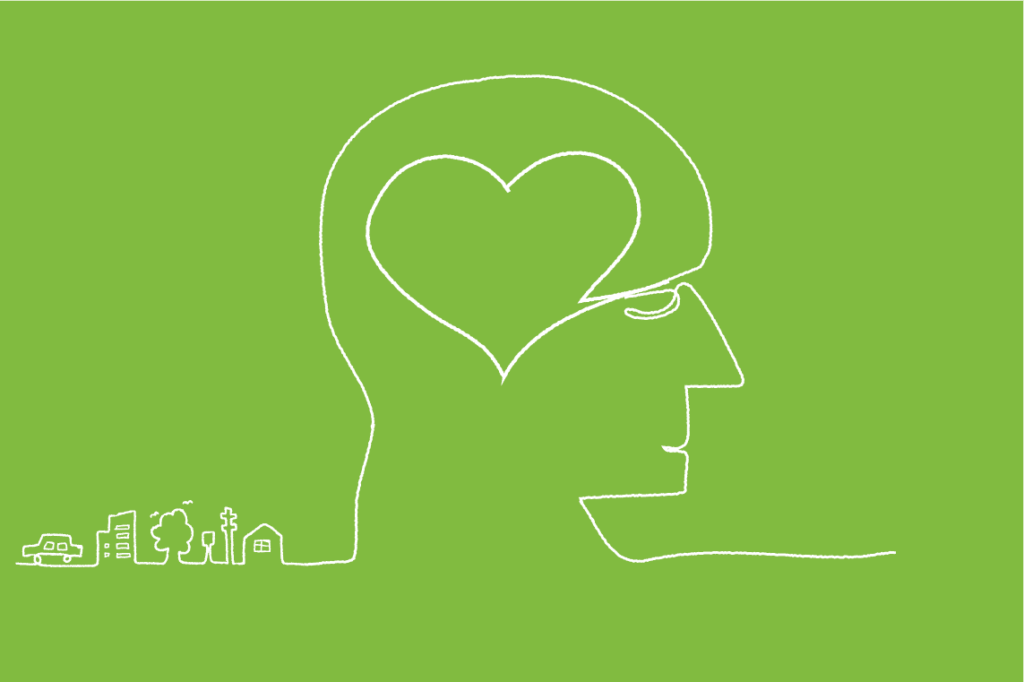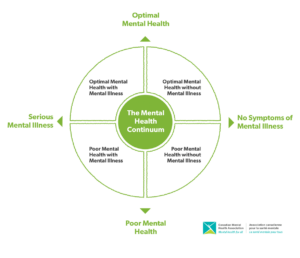
Health is defined by the World Health Organization (WHO) as “a state of complete physical, mental and social well-being and not merely the absence of disease or infirmity.”
It is important to recognize that this interconnectedness of physical, mental and social well-being is what constitutes a healthy human being. When any one of these components is compromised, so is our overall health.
The Canadian Mental Health Association Ontario points out that often people mistake the terminology “mental health” to mean some form of mental illness. While the terms are often used interchangeably, mental health and mental illness are not the same thing. But they are also not mutually exclusive.
In fact, mental health is a positive aspect of our overall health. The WHO defines it as “a state of well-being in which every individual realizes his or her own potential, can cope with the normal stresses of life, can work productively and fruitfully, and is able to make a contribution to her or his community.”
As knowledge has grown around the various aspects of mental health and mental illness, so has our understanding that everyone has some level of mental health all the time, just like physical health. Picture mental health as seen here:

Adapted from Health and Welfare Canada. Mental Health for Canadians: Striking a Balance. 1988.
This diagram illustrates that on the mental health continuum, there is optimal mental health or mental well-being on one end and poor mental health on the other.
On the mental illness continuum, serious mental illness is at one end and having no symptoms of mental illness is at the other. What this means is that someone can have a mental illness and be mentally healthy while someone else with no mental illness can have poor mental health.
In other words, someone who has a mental illness can learn to deal with the illness by seeking support and treatment, using such tools as medication, practising good self-care, and building resiliency skills.
Mental illness is much like a physical illness, such as heart disease, cancer or a broken leg; in most cases, you can learn to effectively live with it and recover from it. Recovery does not necessarily mean an individual no longer has a mental illness. Rather, it is a personal process of gaining control, purpose and meaning in your life and striving to reach your full potential.
When the demands placed on someone exceed their resources and coping abilities, their mental health will be negatively affected and they will move along the continuum toward poor mental health, even if they don’t have a specific mental illness. Regardless of where we are on the continuum, we can all strive for good mental health even if we have a mental illness.
Despite poor mental health not being defined as an illness, having poor mental health is in itself associated with emotional distress and psychosocial impairment comparable to that of a major depressive episode. The effects of poor mental health are quite prevalent, with poor mental health being more common than depression, and can be severe.
All articles and other information posted on http://teacherslife.com are intended to be informational only and not for the purpose of providing any health, medical, financial, insurance, legal, accounting, tax or other advice. Teachers Life does not guarantee or represent that any information in these articles or elsewhere on this website is accurate, complete, current or suitable for any particular purpose. You use or rely on such information solely at your own risk. All articles and website content are the property of Teachers Life and all rights are reserved. IN NO EVENT WILL TEACHERS LIFE BE LIABLE FOR ANY LOSS OR DAMAGE YOU INCUR RELATED TO YOUR USE OR RELIANCE OF THE INFORMATION IN THESE ARTICLES OR ELSEWHERE ON THE WEBSITE. See the Terms of Use for more information.

